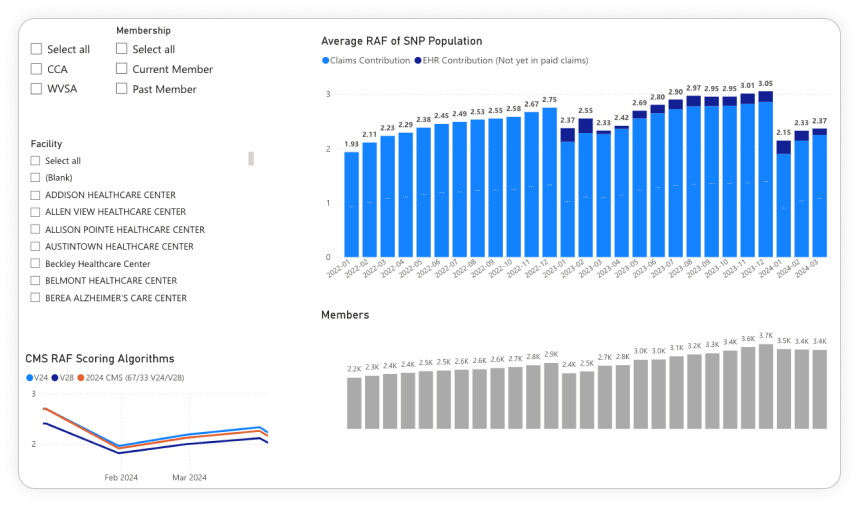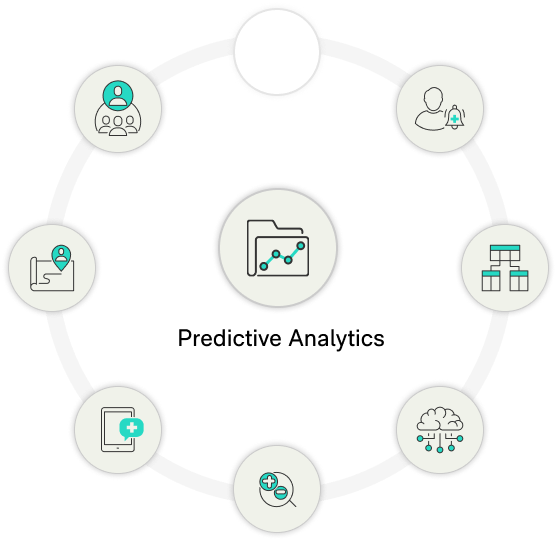Predicting the trends of RAF based on EHR and claims data. See the case study
case study highlight
New Risk Adjustment Factor models for reliable scoring
Ensure accurate RAF scores reflecting all conditions, prompt capture of chronic/episodic conditions, timely clinician assessments, and compliant, comprehensive data for precise reimbursement.

















